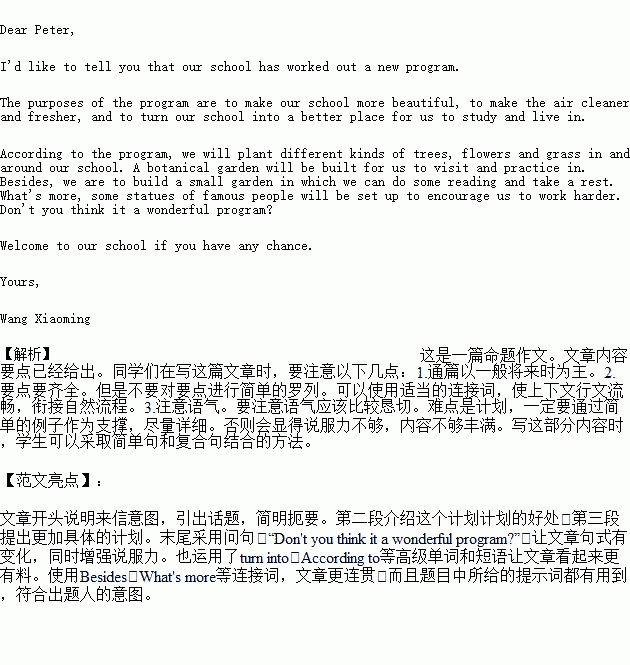题目内容
假设你是小明,请根据你校美化校园的规划,用英语给你在美国的笔友Peter写一封信,介绍该规划。信的主要内容如下:
规划目的: 美化校园、净化空气;创造良好的学习和生活环境
规划内容: 种植花草树木;建一个植物园,供参观、实践;建一个小花园,供休息、读书;建几座名人雕塑,激励师生
注意:1.信的开头和结尾已为你写好,不计入总词数。
2.词数:100词左右。
3.参考词汇:雕塑—statue (n.) 植物园—botanical garden (n.)
Dear Peter,
I would like to tell you that our school has worked out a new program.___________________________________.
_________________________________________________________________________________________________________________________________________________________________________________________________________________________________________________________________________________________________________________________________________________________
Welcome to our school if you have any chance.
Yours,
Xiao Ming



 g you find interesting or unusual. For example,you could make a mental note:“Vicki Cheng -- tall, black hair.” To reinforce your associations, write them on a small card as soon as possible.
g you find interesting or unusual. For example,you could make a mental note:“Vicki Cheng -- tall, black hair.” To reinforce your associations, write them on a small card as soon as possible.